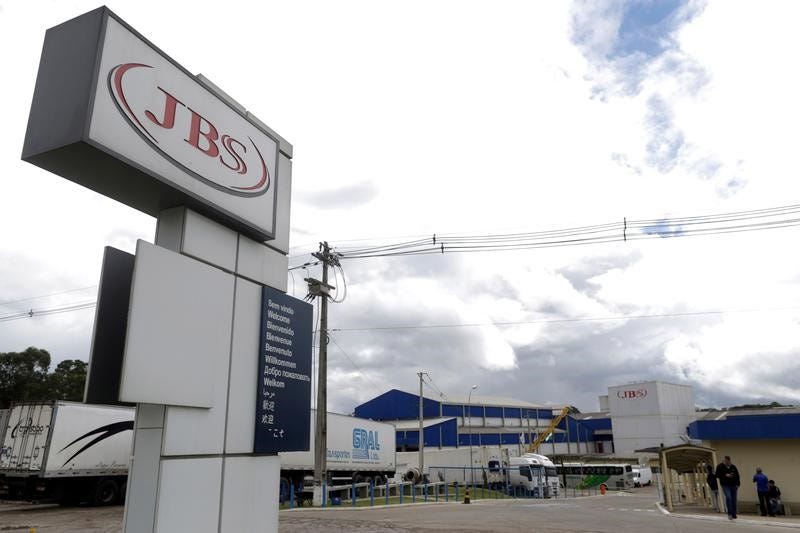
Thomson Reuters
- JBS, the world's largest meatpacking company, says it's getting back online after a cyber attack.
- The attack, believed to have originated in Russia, disrupted plants in the US and Canada.
- Late on Tuesday, the company said its production should be back to normal on Wednesday.
- See more stories on Insider's business page.
Meatpacking operations are returning to normal Wednesday at JBS plants across the US and Canada, after a ransomware attack over the weekend against the world's largest meat processor's IT infrastructure, the company said.
"Given the progress our IT professionals and plant teams have made in the last 24 hours, the vast majority of our beef, pork, poultry and prepared foods plants will be operational tomorrow," JBS USA CEO Andre Nogueira said in a statement late on Tuesday.
The attack on the Brazil-based company is thought to have originated from a criminal organization based in Russia, the White House said, and the FBI is investigating.
JBS is responsible for about one-fifth of all US beef and pork processing capacity, and the disruption yesterday caused the US Department of Agriculture to delay the release of its daily price report. Bloomberg noted that excluding JBS's data from the report could reveal proprietary information about its competitors.
In its statement on Tuesday, JBS said it was able to sell and ship product from nearly all of its North American facilities, and that it was not aware of any customer, supplier or employee data being compromised in the attack.
Livestock industry analysts did say that even a single day of disrupted supply could significantly impact the beef market, which is already seeing a trend of rising prices.
Last month, the cyber gang Dark Side executed a similar attack against the Colonial Pipeline, leading the fuel company to shut off its supply, leading to gasoline shortages across the southeast. The company ended up paying a ransom worth $4.4 million in bitcoin to the hackers.
The issue is getting rapidly larger with the rise of various cryptocurrencies. A recent study estimated that in 2020, more than $350 million worth of cryptocurrency was paid to hackers by victims of ransomware attacks, nearly four times the amount in 2019.
